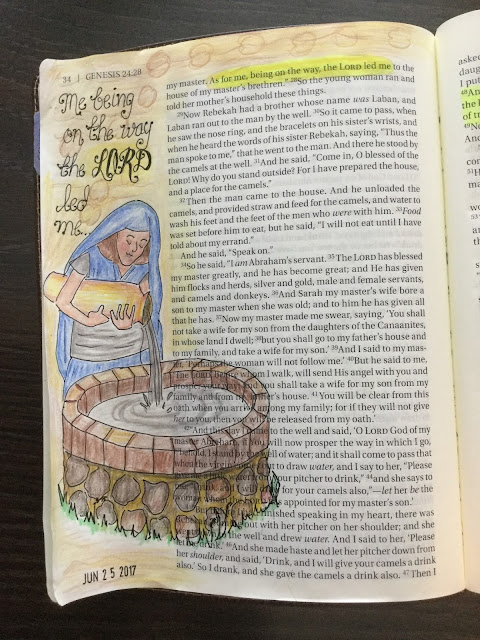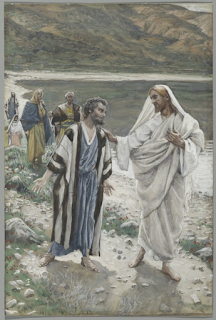 |
| Jesus welcomes children - Paul Chenavard |
TO CHEW ON: "'Come to Me, all you who labor and are heavy laden, and I will give you rest.'" Matthew 11:28
How welcoming is the word come, especially when Jesus is saying it. Some other 'comes' in the Bible illustrate the welcoming heart of God.
- God invited Noah into a safe place when He said to him, " ' Come into the ark, you and all your household' " - Genesis 7:1
- " ' Come with us and we will treat you well,' " Moses said to Hobab, his Midianite brother-in-law in an invitation to join with the Israelites as they journeyed through the desert - Numbers 10:29.
- 'No one left out' Hezekiah's invitation to the distant tribes of Ephraim and Manasseh seemed to say, when he invited them to "...come to the house of the Lord at Jerusalem" - 2 Chronicles 30:1.
- Come for personal cleansing God invites us all through Isaiah - Isaiah 1:18.
- Come for provision that brings lasting satisfaction: "Come to the waters … Come buy and eat. Yes, come buy wine and milk. Without money and without price" - Isaiah 55:1.
- " 'Come to Me,' " Jesus invites here, " '… and I will give you rest.' " [Rest = anapauo = to cause or permit one to cease from any movement or labour in order to recover and collect his strength; to give rest, refresh, to give one's self rest, take rest; to keep quiet, of calm and patient expectation The word describes a cessation of toil, a refreshment, an intermission.]
- Jesus' invitation included children: " ' Let the little children come to Me and do not forbid them...' " Luke 18:16.
- Come all who are willing is the invitation of the king to a great supper in Jesus' parable about the kingdom of heaven: "Come for all things are now ready" - Luke 16:24.
- And the Bible ends with this wonderful invitation for all who hear, who thirst, who desire: "And the Spirit and the Bride say, 'Come!' And let him who hears, say 'Come!' And let him who thirsts come. Whoever desires let him take the water of life freely" - Revelation 22:17.
What is our need today? A safe place of eternal well-being? Somewhere to belong? Cleansing? Provision? Rest? Whatever it is, God's invitation is still "Come."
PRAYER: Dear Jesus thank You for these words of invitation and the wide-open-arms message of Your life on earth. As your modern disciple may I make it a habit to come to You first with my needs, and invite others to do the same. Amen.
*********
Unless otherwise noted all Scripture quotations are taken from the New King James Version®. Copyright © 1982 by Thomas Nelson, Inc. Used by permission. All rights reserved.




















